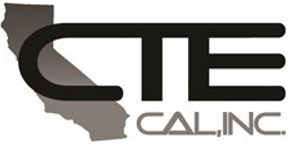Special Inspectors are a group of technical professionals in the construction industry rarely discussed or heard of outside the green fences of job sites. Special Inspectors bring a combination of engineering and construction knowledge to the table with the goal of upholding the building code in the face of the practically unlimited variety of challenges presented by modern construction. Often, a Special Inspector must communicate technically challenging engineering concepts to Contractors who are focused on practical solutions. Meeting this challenge requires a healthy dose of interpersonal skill, humility, and leadership. We will dive into the practical challenges of applied engineering, and the troves of knowledge hidden away in this profession that would benefit everyone – from apprentice laborer to principal engineer.

Identify the Problem
Construction is difficult. Modern engineering designs largely revolve around hazards that happen every 50 or 100 years – events like earthquakes or gale-force winds that are tough to visualize in the field. Construction drawings take on the heroic goal of presenting 3-Dimensional objects on flat paper, not a very conducive way to communicate ideas to the untrained observer. Given these limitations, Contractors must interpret pages and pages of black and white lines and end up with a fully realized structure. It’s easy to understand why things can go wrong – that’s where the need for third-party inspection comes in.
Special Inspectors provide a fresh set of eyes on the situation. The most critical portions of the structural system are subjected to inspection by a third-party individual whose primary goal is confirming that field conditions match the engineered drawings. Beyond that, the inspector needs to have a thorough knowledge of building code requirements and engineering fundamentals. The last, and most important skill an inspector must have, is the ability to communicate their knowledge to people of all backgrounds and abilities. This is usually done best through collaborative problem solving, rather than confrontation.
Communicate Key Information
However, one must undersatnd an idea before they can convey it. That’s where preparation and a sense of curiosity come in handy. Special Inspectors can leverage these tools through the study of the Building Code and other codebooks covering each different aspect of construction. California Building Code (CBC) Chapter 17 covers the requirements for construction Special Inspection of every type of structural system imaginable. Other codebooks in the Inspector’s arsenal include:
- ACI 318: Building Code Requirements for Structural Concrete
- Steel Construction Manual
- AWS D1.1 Structural Steel Welding Code
- ASCE 7
All of these references will be found in the standard structural engineering library, too. From these references, the Special Inspector can begin to understand the structural engineer’s intent, which is critical for making quick and accurate decisions in the field. However, no amount of academic knowledge can give the inspector the practical knowledge of how structures are built – that comes from on-the-job training and experience.
That is where the Special Inspector’s role becomes critical – at the interface between paper, pencil, and practicality. A knowledgeable and confident Special Inspector can influence the construction process to be safer, faster, and more efficient by leveraging the knowledge of those around him or her on the fulcrum of their own experience.
Want more information?
CTE Cal takes its role as a Third-Party Special Inspection firm seriously, and proudly trains up and coming professionals in this lesser-known construction role. Our deep well of experience is constantly refreshed by new perspectives from engineering graduates, veterans of the trades, and through our company culture of curiosity. If you are interested in joining our team, feel free to apply here. If you would like to engage our services on your next construction project, please allow us to provide you a proposal by contacting us here or by phone at your local office.


